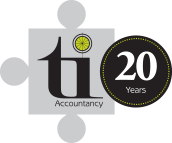
If you’re one of the many people in the UK who runs their Limited Company from their own home, there’s some good news for you! As long as the work you do at home is work that earns money for the company and not just admin work, you’re entitled to claim tax relief on part of the running costs of your home. Here’s a quick guide on what you can claim.
What running costs can I claim?
Here are some of the costs you could claim:
- Light & Heat
- Telephone & Broadband
- Property Repairs – must be on the part of the house you use for business.
- Water – can only claim if use is significant.
Rent, Mortgage interest and Council Tax cannot be claimed.
Telephone & Broadband
Ideally the phone contract should be in the company’s name and should be used for business calls only, or just a few private calls, otherwise you’ll run into all kinds of issues with taxable benefits. This means you should have a separate business phone line installed for the company, or alternatively use a provider such as Skype.
How do I claim?
There are 2 ways you can calculate your allowable expenses: the flat rate method or the analysing the costs method.
Flat Rate Method
Currently HMRC allows you to claim a flat £6 per week (excluding business telephone calls) without the need for any receipts.
This method is a lot quicker than working out your actual costs, but the figure might not be as high meaning that you could save time but pay more tax.
Analysing the Costs Method
The analysing the costs method allows you to claim part of the actual running costs of your home in your business accounts. So how do you do this?
- Count all the rooms in your house (exclude bathrooms/hallways)
- Identify the rooms that you work in and work out the percentage of time spent in each room which is business related e.g. you spend 10 hours in your living room but only 5 hours is business related then 50% is your business use percentage.
- Divide the cost of your bills between the rooms in your house either by dividing the cost evenly between the number of rooms in the house (e.g. £500 bill/5 rooms = £100 per room) or by working out the percentage of floor space for room each and multiplying that by the total bill cost (e.g. office is 10% floor space x £500 bill = £50).
- Apply the percentage of work use to the relevant room costs e.g. £100 x 50% = £50 as business expense, or, £50 x 50% = £25 as business expense.
Renting workspace to your Limited Company
To charge your company rent you will need to set up a rental agreement between you and your company. When preparing the agreement, the amount of rent needs to be realistic and you will need to have a room in your house dedicated to the business. The formal agreement needs to be signed by both parties. Your rental agreement can be used to cover the proportional costs of the rented space. There is no definitive list of allowable expenses as what is allowable depends on the facts in each case, but you can include items such as mortgage payments, utilities and council tax based on the proportion of the property used for business purposes. A good way to calculate your allowable rental expenses is the analysing the cost method.
Please be aware if you were to later sell the property, you may need to pay Capital Gains Tax as the room used for business would not qualify for Private Residence Tax Relief.
Also any rental income received from your company must be declared on your self-assessment tax return, which means you may be subject to tax on any profit made.
Claiming costs for working at home is not as simple as it initially sounds. If you would like any further information, please contact us at admin@tiaccountancy.co.uk
Lucy





